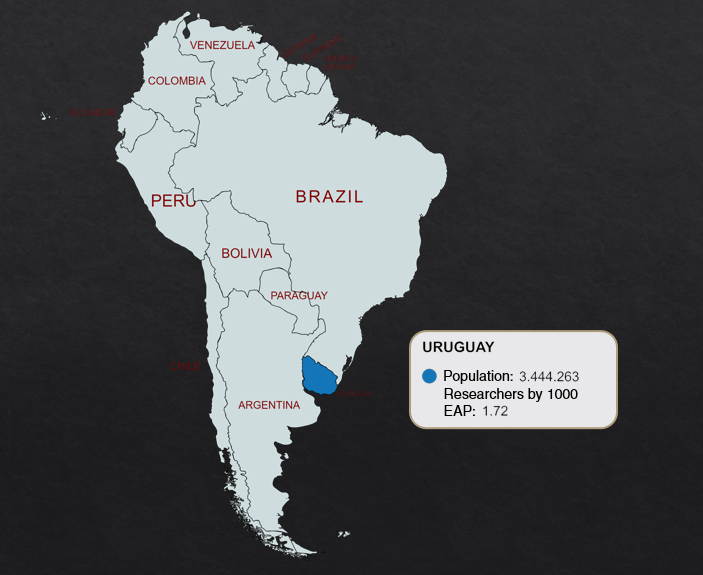CECIC’s members participate on several initiatives and have advised the design of public policies in the field of scientific research, circulation of knowledge and circuits of publication. Among them, it is worth mentioning:
2024
- Report on the consultancy: Research Assessment in Uruguay, a reflexive perspective

The consultancy arose as a need within the Consejo Nacional de Innovación, Ciencia y Tecnología (CONICYT) in the context of the discussion fostered by the Ministry of Education and Culture in policy areas and academic spaces towards the need for a new institutional framework of the STI in the country. The consultancy was intended to provide a diagnosis of the different evaluation systems at work and to identify existing incentives and/or disincentives for the development of research and technological activities. The tasks requested by CONICYT were: a) to systematize and analyze the experiences of research career evaluation in Uruguay within the framework of current international debates and b) to prepare recommendations to improve and articulate the existing evaluation systems. Dr. Fernanda Beigel was selected to head this consultancy, which was carried out within Arghentina’s CONICET consultancy system.
For the development of the study, the reflective perspective of the Sociology of Evaluation was adopted, implementing a methodology that articulated qualitative and quantitative strategies, as well as a wide range of documentary material collected from all national institutions. In order to analyze the experience of the academic careers existing in Uruguay at different scales (institutional and national), interviews and focus groups were conducted with members of evaluation committees, officials, academic-scientific referents, and researchers. These testimonies were analyzed using Atlas.ti (see Part Two of this report). Likewise, an exploratory study of academic trajectories was conducted to examine the relationship between the evaluation systems of researchers and the profiles of production and circulation of knowledge. Finally, based on the complete information on researchers in the National System of Researchers (SNI) existing in the Uruguayan Curriculum Vitae system (CVUy), a bibliometric analysis combined with prosopography was implemented to detect asymmetries and promotion problems in the SNI. With all the empirical material collected, the strengths and weaknesses of the researcher evaluation systems in Uruguay were identified, and a set of recommendations were proposed and included in the same study. The full report is available at the following link:
2023
- Participation in the Commission of Memory
At the end of March 2021, the then President of CONICET, Ana Franchi, resolved via Resolution 2021-634-APN-DIR#CONICEET, the officialization of the work of a group of members of the Council who had long intended to draw up a list of victims of State terrorism during the last civil-military dictatorship (1976-1983) linked to CONICET in order to pay tribute to and repair their respective institutional files.
As stated by CONICET on its official website, this commission is permanent and requires the collaboration of all members of the Council and of those who can provide data and information on victims of the military dictatorship during the aforementioned period.
The work of the Commission since its inception reached a total of 15 people expelled from CONICET, detained/disappeared, whose files were repaired. In addition, more than 600 people were exonerated and more than 2000 resigned during the period between 1973 and 1983. The results of these inquiries were published in Technical Reports and a book published by the Council in 2023 (available at the following link).
All information about the Commission is available on the microsite.
2018-2022
- Research Assessment. Fernanda Beigel’s participation at CLACSO’s FOLEC initiative and in the Institutional Assessment Program of Argentine Ministry of Science, Technology and Innovation.
- Open Science. Fernanda Beigel is currently the president of the Open Science Committee of UNESCO.
- Report for the Argentinean Center for Scientific and Technological Information (CAICYT) on the diagnosis and opportunities for improvement of this Center.
- Institutional studies conducted at Universidad Nacional de San Martin, Universidad Nacional de Cuyo and Universidad Nacional de San Juan. In all three cases, studies are focused on the production and circulation of scientific knowledge. The most advanced study is related with UNSAM (which includes an active agreement between IDAES and FCPyS – UNCuyo). This study has involved more than a year of work. Final reports will be submitted to the UNSAM by December 2020.

